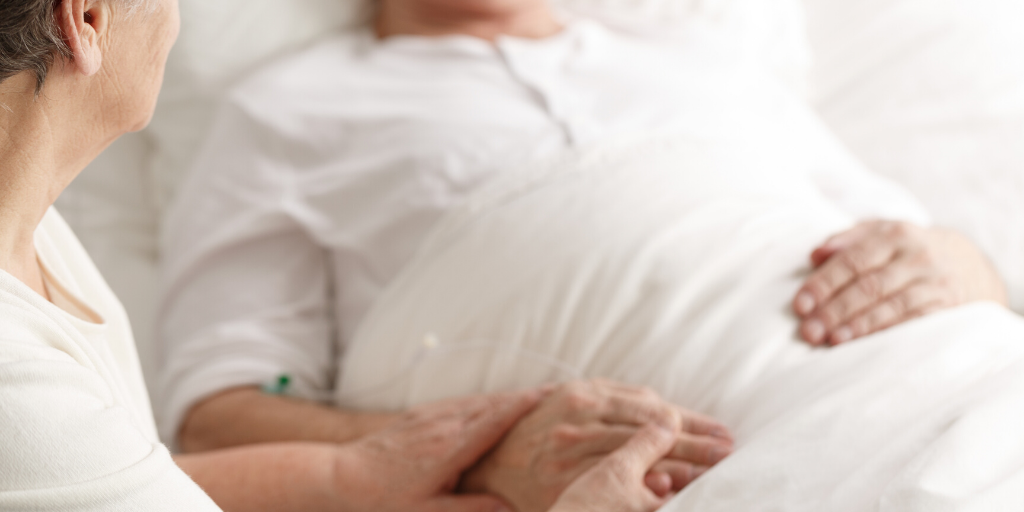|
My hope is that our society – and each of us – will better recognize the profound human-ness of the tremendously important phase of life that we know as ‘end of life’ or palliative. It might seem to be normal to fear this time, and perhaps to seek to avoid the experience of living when dying is inevitable due to an illness. While we understand as compassionate humans the natural grief and concern that accompanies the possibility of dying, there are other ways to experience it – and I have seen these other ways in countless individuals. Those people have taught me that the time prior to their natural deaths can be a time of growth, of healing of relationships, of seeking and giving forgiveness, of preparation of hearts and souls for meeting their God, of internal reflection and openness, of teaching those around them through their example, even a time of profound peace and joy, and certainly a time of giving love unreservedly, and of accepting loving care from others while vulnerable and frail. Society’s response to suffering is to enact a law that allows physicians and nurse practitioners to deliberately end a person’s life through the provision of chemicals that are specifically meant to cause death. But suffering - whether physical, mental or emotional - can and should be a trigger for our spiritual and human selves to respond differently based on compassion. All of us can protect and support those who are particularly vulnerable and who might otherwise choose assisted death as a way to stop their suffering because they cannot access society’s resources due to their vulnerability. We should not be afraid to support conscience rights for people in medical professions. We want people who are engaged in challenging health care tasks to be able to honour moral commitments for at least two reasons: a) so that they are not morally harmed by being forced to do things against their conscience; and b) so that they can do their best work for all the people they care for, by being whole to the deepest parts of their beings. Since conscience rights are not absolute rights that prevail in all circumstances, supporting conscience rights can be done without impairing patient access to needed services. Those of us who are able to, have a duty to advocate with decision-makers to minimize the harms of assisted death and to reject the further expansion of the criteria for assisted death eligibility. We must do what we can to promote widespread availability of expert end of life care. The focus of this care is to reduce suffering from symptoms and also to assist people to live as well as they can as they approach the end of their natural lives. Palliative, end of life care has been so positive and helpful for so many people and simply should be universally available. The very human act of dying and of preparing for death while we live demands a response that does not seek first to snuff out life, but rather that brings out our love for each other and communal support while we acknowledge the human conditions of frailty, vulnerability, uncertainty and eternal Hope. Written by Dr. Eric Wasylenko, a palliative care physician and clinical ethicist. The Bishop’s of Alberta and Northwest Territories have written a pastoral letter on the proposed expansion of Medical Assistance in Dying (MAiD). They encourage Catholics to write a letter to their members of parliament to share their opposition to euthanasia/assisted suicide.
2 Comments
Eugene Gawor
2/19/2020 09:47:31 pm
Life is sacred from the moment of conception to natural death. Each of us, including doctors, nurses, social workers should show and implement from the bottom of the heart compassion for our brothers and sisters...AMEN. I am trying, working as a volunteer, trying to defend life from womb to tomb.
Reply
Maureen Remus
2/28/2020 08:59:17 am
Re: “Those of us who are able to, have a duty to advocate with decision-makers to minimize the harms of assisted death and to reject the further expansion of the criteria for assisted death eligibility.”
Reply
Your comment will be posted after it is approved.
Leave a Reply. |
Author
Catholic Pastoral Centre Staff and Guest Writers Archives
July 2024
Categories
All
|

 RSS Feed
RSS Feed